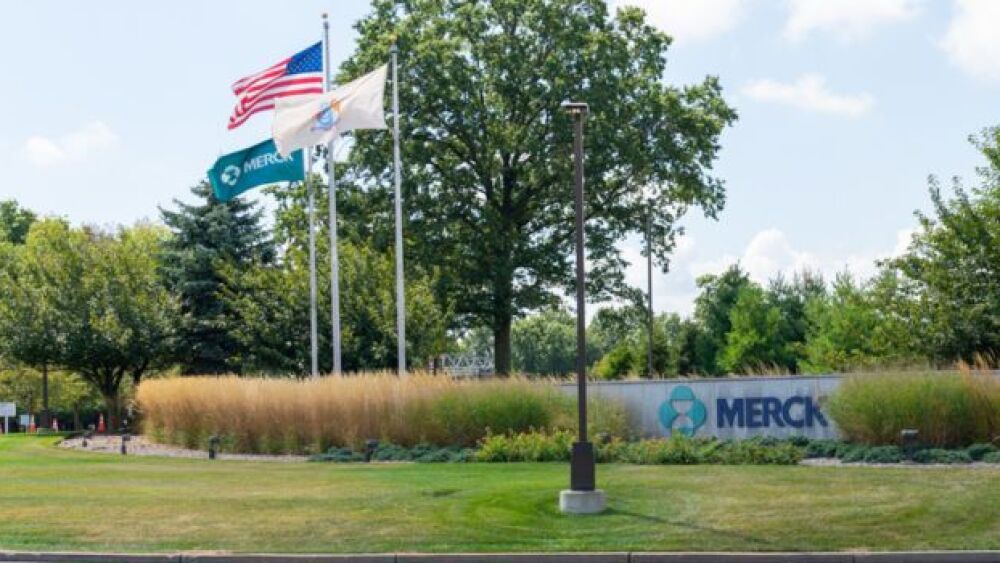Merck’s HIF-2α inhibitor Welireg has been approved by the FDA to treat advanced renal cell carcinoma after treatment with PD-1 or PD-L1 and VEGF-TKI-based therapies.
Pictured: Merck headquarters/iStock, JHVEPhoto
Merck’s HIF-2α inhibitor Welireg (belzutifan) has netted another FDA approval, this time in treating advanced renal cell carcinoma following trestment with a PD-1 or PD-L1 inhibitor and a vascular endothelial growth factor tyrosine kinase inhibitor.
On Friday, the New Jersey-based pharma announced that the approval is based on its Litespark-005 trial, which found the treatment to have greater progression-free survival against Novartis’ Afinitor (everolimus). According to the results, Welireg secured a p-value of p=0.0008 in progression-free survival and secure an objective response rate of 22%. The FDA officially approved the drug’s expansion on Thursday evening.
“Despite recent progress in the treatment of advanced RCC, there is yet to be an option specifically approved for patients whose disease progresses following a PD-1 or PD-L1 inhibitor and a TKI therapy. This approval of belzutifan introduces a meaningful new treatment option for certain patients, as belzutifan reduced the risk of disease progression or death compared to everolimus,” Toni K. Choueiri, the study chair of the LITESPARK-005 and director of the Lank Center for Genitourinary Oncology at Dana-Farber Cancer Institute, said in a statement.
The overall survival results for the Litespark were “immature” but at the time of subsequent prespecified analysis Merck said 59% had died in the randomized population. Of the 82 patients who had taken the drug and managed a confirmed response, 30% had a response duration than 12 months or longer.
Fatal adverse reactions were reported in 3.2% of patients taking the drug during the trial, while 6% of patients permanently stopped treatment with Welireg due to adverse reactions. The reactions that made people permanently stop Welireg included anemia, hypoxia and hemorrhage.
“This approval of Welireg marked the first new therapeutic class available for eligible patients with advanced RCC in nearly a decade and was based on the statistically significant progression-free survival benefit observed in patients following treatment with a PD-1 or PD-L1 inhibitor and a VEGF-TKI when compared to everolimus.” Marjorie Green, the senior vice president and head of late-stage oncology and global clinical development at Merck Research Laboratories, said in a statement.
Welireg was approved in 2021 to treat adults with von Hippel-Lindau disease, which is a genetic condition that causes non-cancerous tumors in the body to grow. The drug has been a modest seller for Merck, bringing in $146 million in sales in the third quarter of 2023.
Tyler Patchen is a staff writer at BioSpace. You can reach him at tyler.patchen@biospace.com. Follow him on LinkedIn.






